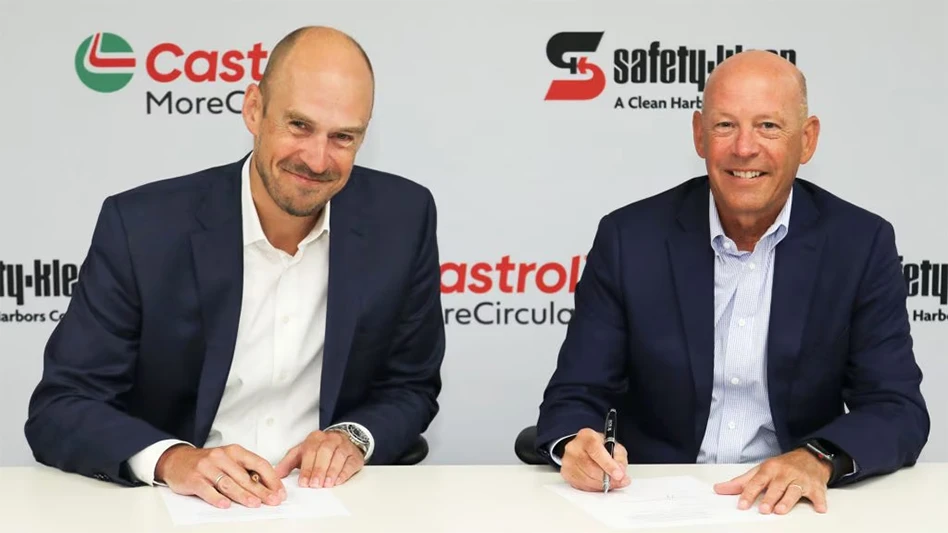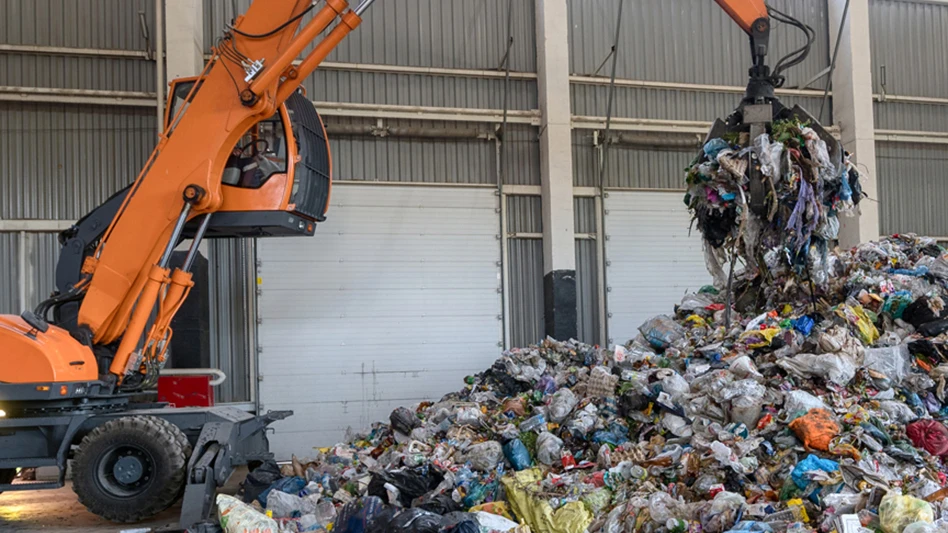
Managing a waste management fleet goes far beyond simply keeping vehicles on the road. In an industry that demands efficiency and cost-effectiveness, fleet managers must adopt a strategic approach to minimize expenses, maximize operational efficiency and ensure sustainable practices. One of the most critical aspects of achieving these goals is reducing your fleet’s Total Cost of Ownership (TCO).
What is Total Cost of Ownership (TCO)?
Total Cost of Ownership (TCO) refers to the complete cost of owning and operating a fleet over its entire lifecycle. This includes the obvious costs like vehicle acquisition and maintenance, but also more hidden expenses such as downtime, fuel and even the administrative overhead required to manage these assets. For fleet managers in the waste management industry, understanding TCO is essential to optimizing operations and maintaining profitability.
Key Components of TCO
● Acquisition Costs: The initial purchase price or lease payments for vehicles. This is often the most visible cost, but it’s just the tip of the iceberg.
● Maintenance Costs: Regular servicing, repairs and the associated labor costs. This also includes the cost of replacement parts and preventive maintenance to avoid major breakdowns.
● Fuel Costs: One of the most significant ongoing expenses. The type of vehicle, driving habits and fuel efficiency all play a role in this cost.
● Downtime Costs: When a vehicle is out of service, it’s not just the repair costs that add up. There’s also the lost revenue from missed jobs, potential penalties and the need for backup vehicles.
● Depreciation: Over time, vehicles lose value. Depreciation is a noncash expense, but it significantly impacts the overall TCO.
Understanding and managing these costs effectively is the key to reducing your fleet’s TCO and driving long-term success in the waste management industry.
The Importance of Reducing TCO in Waste Management
Reducing TCO isn’t just about cutting costs—though that’s a significant part of it. It’s about optimizing every aspect of fleet management to improve efficiency, reduce waste and enhance service quality. For waste management companies, where margins can be thin and operational efficiency is paramount, reducing TCO can make the difference between a profitable operation and one that struggles to stay afloat.
Reducing TCO leads to:
● Improved Profitability: Lower operational costs directly impact the bottom line, allowing you to reinvest in your fleet or other areas of your business.
● Enhanced Operational Efficiency: By focusing on key areas of cost reduction, you can streamline operations and reduce the time and resources needed to manage your fleet.
● Sustainability: Efficient fleets are not only cost-effective but also environmentally friendly. By reducing fuel consumption and optimizing routes, you’re contributing to a greener planet.
Strategies to Reduce TCO in Waste Management Fleets
Now that we understand the importance of TCO, let’s dive into some practical strategies that fleet managers in the waste management industry can implement to reduce these costs.
1. Leverage Data for Informed Decision-Making
In today’s data-driven world, one of the most effective ways to reduce TCO is by leveraging fleet data. By collecting and analyzing data on various aspects of fleet performance, you can identify inefficiencies and make informed decisions that lead to cost savings.
● Telematics: Use telematics to monitor vehicle usage, driver behavior and fuel consumption. Telematics systems can provide real-time data on vehicle location, speed and idle time, helping you identify opportunities to optimize routes and reduce fuel costs.
● Predictive Analytics: Analyze historical data to predict when maintenance will be needed. Predictive maintenance can prevent costly breakdowns and reduce downtime, significantly lowering TCO.
● Fleet Management Software: Invest in a robust fleet management system that consolidates data from all aspects of your operations. This software can help you track expenses, schedule maintenance and even automate routine tasks, freeing up time for more strategic activities.
2. Optimize Maintenance Practices
Maintenance is a significant component of TCO and optimizing maintenance practices can lead to substantial savings.
● Preventive Maintenance: Regularly scheduled maintenance can prevent major repairs and extend the life of your vehicles. This includes routine oil changes, tire rotations, brake inspections and more. By catching issues early, you can avoid the higher costs associated with major repairs or vehicle replacements.
● Condition-Based Maintenance: Instead of relying solely on scheduled maintenance, consider implementing condition-based maintenance. This approach uses real-time data from vehicle sensors to determine when maintenance is needed based on the actual condition of the vehicle, rather than a set schedule.
3. Invest in Fuel Efficiency
Fuel is one of the most significant ongoing expenses in any fleet and improving fuel efficiency can have a dramatic impact on TCO.
● Fuel-Efficient Vehicles: When acquiring new vehicles, prioritize fuel efficiency. While these vehicles may have a higher upfront cost, the savings on fuel over the vehicle’s lifetime can more than offset the initial expense.
● Driver Training: Educate your drivers on fuel-efficient driving practices, such as reducing idling time, maintaining steady speeds and avoiding sudden stops and starts. These small changes in behavior can lead to significant fuel savings.
● Route Optimization: Use technology to optimize routes, reducing the total miles driven and, consequently, fuel consumption. Route optimization software can help you plan the most efficient routes, taking into account factors like traffic, road conditions and stop locations.
4. Minimize Vehicle Downtime
Downtime is a hidden cost that can quickly add up, especially in the waste management industry where missed collections can lead to customer dissatisfaction and penalties.
● Proactive Maintenance: As mentioned earlier, preventive and condition-based maintenance can reduce the likelihood of unexpected breakdowns, keeping your vehicles on the road and generating revenue.
● Spare Vehicle Strategy: Have a strategy in place for spare vehicles. This could include maintaining a small number of backup vehicles or having agreements with rental companies to provide temporary replacements when needed.
● Rapid Response Plans: Develop rapid response plans for when a vehicle does go down. This could include having a mobile repair team that can quickly address issues in the field or ensuring that replacement vehicles are readily available.
Embrace Technology for Real-Time Insights
Real-time monitoring of vehicle health can alert you to potential issues before they become major problems. This can include monitoring engine performance, tire pressure and other critical systems.
The waste management industry is becoming increasingly competitive, and those who harness the power of technology will have a significant advantage. By adopting technology solutions that provide real-time data and insights, fleet managers can stay ahead of the curve and make decisions that reduce TCO.
Take the Next Step Towards Reducing TCO
Reducing TCO is not just about cutting costs—it’s about optimizing every aspect of your fleet operations to improve efficiency, service quality and sustainability. By focusing on data-driven decision-making, optimizing maintenance practices, investing in fuel efficiency and minimizing downtime, fleet managers in the waste management industry can make a tangible impact on their bottom line.
Want to dive deeper into strategies for reducing TCO in your fleet? Download our full white paper on The True TCO for Fleets and discover how you can unlock the full potential of your waste management fleet.
About Fleetio
Fleetio is the fleet optimization platform that helps fleets run, repair and optimize their fleet vehicles. By implementing one platform to maintain your fleet assets, you’re able to manage inspections, work orders, PM schedules, parts inventory and more in a single dashboard. Fleetio finds the data in your everyday operations and turns it into powerful insights, so you can drive your fleet forward with confidence.
“Fleetio fleet management is exactly what we were looking for. Totally easy to use! We wanted to be able to track all of our truck expenses and be able to see what each truck in the fleet costs per mile, and Fleetio does exactly that!” - Sheldon D., Sue’s Recycling
See how Fleetio can optimize your waste management operations.
Latest from Waste Today
- CAA submits final draft program plan in Oregon
- Washington city adds organics collection to waste service
- Aspen Waste Systems expands into Denver-metro market
- NYSAR3 seeks respondents to commercial recycling survey
- Aemitis AD system goes online
- Liebherr breaks ground on logistics center
- Rubicon appoints new CFO
- Nexus W2V attracts funding for waste conversion project in Indiana





